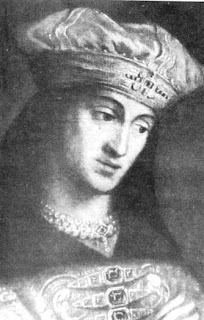- He dedicated himself completely and entirely to Christ's poor, to the pilgrims, the sick, the prisoners,and to all in distress.
- To widows, orphans and the oppressed, he was not only a protector and defender, but a father, son and brother.
- Nor is it possible to tell or even imagine the extent to which he promoted justice and exercised temperance, or the prudence with which he was endowed, or the strength and constancy of is character, and that in an age of permissiveness, when men were very much inclined to fall into evil ways . . .
- Day by day her urged his father to rule the kingdom and the subject peoples with justice . . .
- He took up the causes of the poor and wretched, and followed them up as if they were his own. Because of this the people called him the defender of the poor . . .
- It was always his preference to mix with the poor and the weak . . .
- He never sought the power which belongs to men of the highest rank . . .
- We have the word of important and trustworthy men, who were close to him and in whom he confided, that he lived as a virgin all his life, and died a virgin.
One of the things that happened during Martial Law was the forced sterilisation of many women after they gave birth in government hospitals. The Population Commission at the time was pushing a very aggressive population control programme at the time. It was widely believed that each government hospital had a quota of sterilisations that they were expected to meet. Husbands weren't consulted and wives often made decisions that they later regretted because they were under pressure from those who should have been taking care of them.
On the other hand, government doctors and nurses are poorly paid. Today, many fully qualified nurses who cannot afford to go overseas where they will get jobs with decent pay, often have to offer their services as 'volunteers' in government hospitals.
There is no question that many Filipinos have a strong Catholic faith. Many died during the Martial Law years in witness to that. But there is a woeful absence of a sense of the justice the Gospel demands, especially when it concerns the poor and the good of the wider community, as shown in the Human Face column of Ma. Ceres P Doyo (photo) in today's Philippine Daily Inquirer, Confessions of a highwayman. You can also find the article on Ceres' own blog, Human Face by Ceres. Ceres is one of the best journalists in the Philippines.





